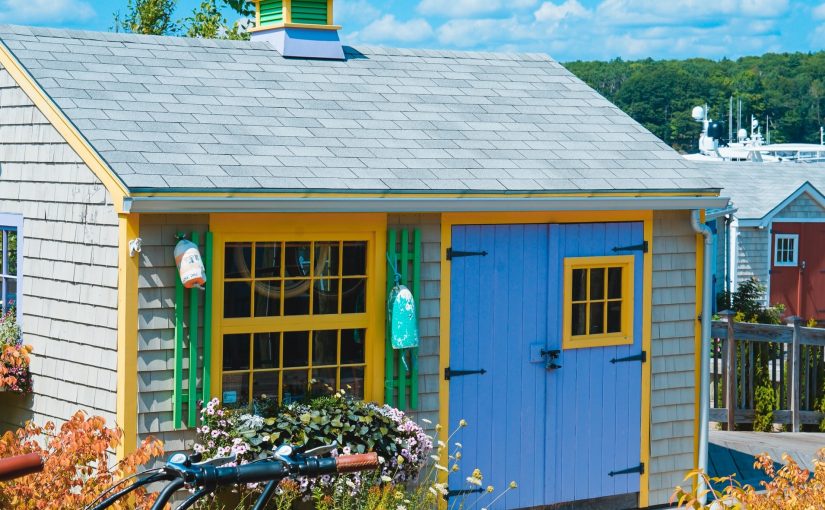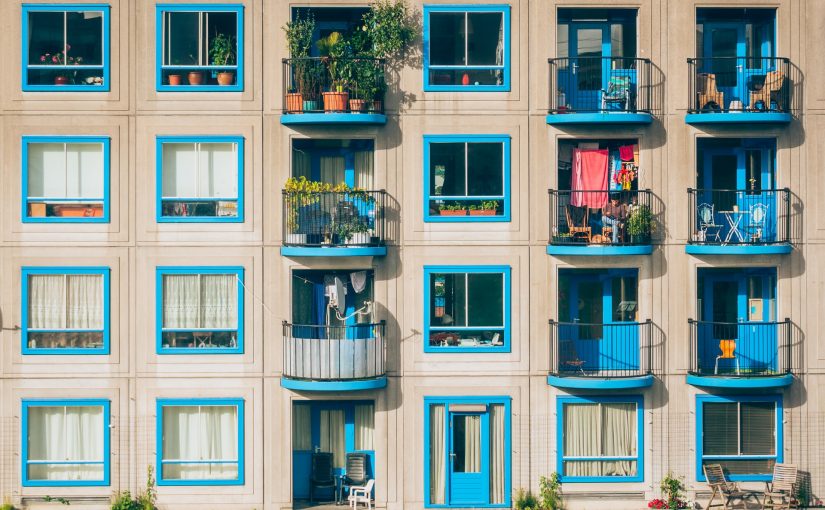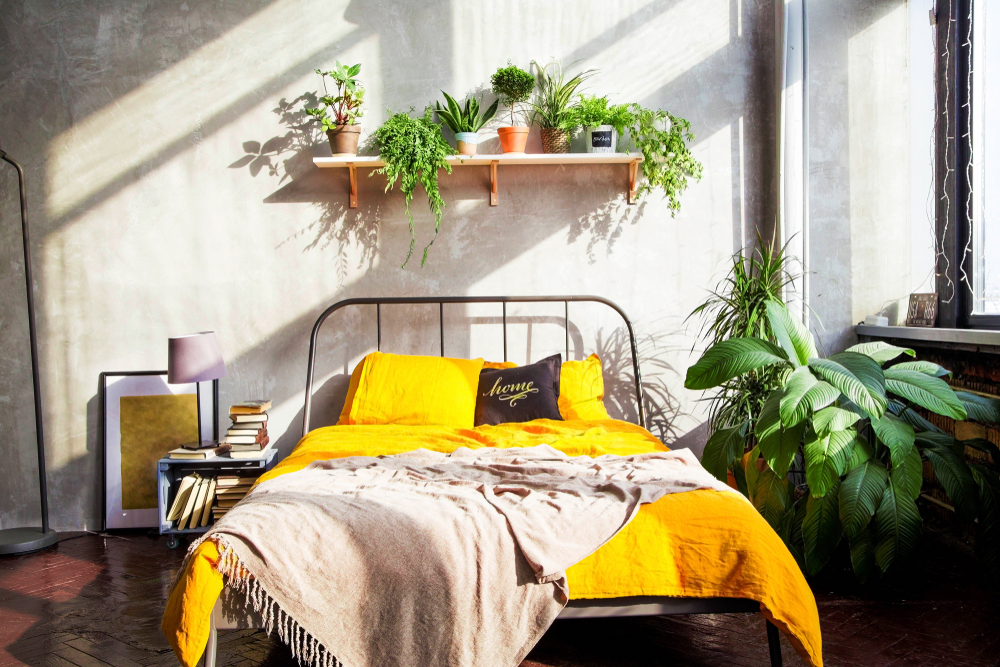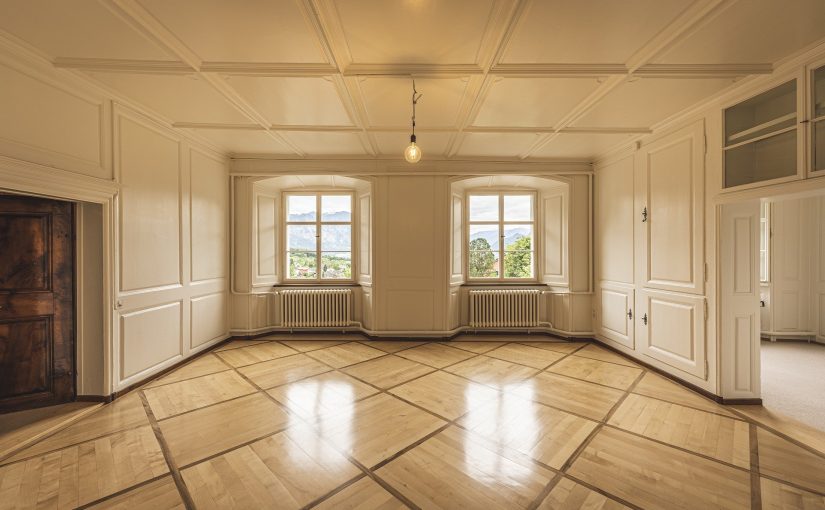Painting is one of the most enjoyable activities when you know how to do it properly. Most homeowners have been living with white walls for decades because they dread painting. You can easily improve the look and feel of your home by simply painting a new color. And this doesn’t take much effort.
Paint colors make a statement of the homeowner. You can use bold to mute colors depending on your preference. You don’t have to spend thousands of dollars to paint your house. Here are ten things that you should keep in mind when painting your house to make the task easier. You’ll probably enjoy painting after knowing these ten things. Let’s get started!
1. Preparing a room makes a huge difference
All great painters know that painting is easy when there are no objects in the way. Emptying your room as much as you can save you a lot of time and money in the long run. If you are painting your bedroom, remove the beddings and move your bed and other furniture pieces to the center. And cover them with an old sheet.
While it may seem unnecessary to wipe down walls, it is a critical step. Whether you see it or not, there is a buildup of dust, dirt, and oil that will affect the quality of your work. Remove the debris before painting to allow the paint to stick to the walls.
You should also fill the cracks and nail holes and tape off the window trims, adjacent walls, and light switches. Cover the floor using newspapers, old clothes, or a roll of paper. Prepping the room before painting is a critical step that shouldn’t be ignored.
2. Test the color
It’s quite difficult to know how a particular color will look on your walls before painting it. If you’ve been thinking of painting a new color, it’s important to buy a sample. Let the paint dry and observe its color during the day and at night.
This will give you a clear picture of how the color will look like after the paint job. If you are not sure about a particular color, buy a few samples, and test them. You’ll be amazed at the colors you’ll fall in love with. And even more surprised at how your favorite color looks in your home. Testing out colors before committing will save you precious time in the long run.
3. Color your world
Choosing and mixing colors can be frustrating for some. However, you shouldn’t allow the fear of mixing colors to make you choose plain colors like white, beige, or off-white. Trying out different colors will help you evoke different emotions while in the room.
For instance, dark colors add depth and texture to your space. This is especially true if the room is enormous with high ceilings. On the other hand, if your room is small with little or no natural light, bright colors can open up space. Don’t be afraid to mix colors. You’ll be surprised by the result. Colors are fun. Don’t be afraid to add them to your rooms.
4. Choose your finish wisely
While the color matters, the finishing does as well. High gloss paint finishes are easy to clean and durable. However, they usually highlight the imperfections on your walls. On the other hand, a flat paint finish hides these imperfections. However, it is more susceptible to damage. The egg shell finish hides imperfections, provides some gloss, easy to clean, and prevents damage. Choosing the correct finish will improve the look of your house.
5. You can change the paint
After painting a small area of the wall and observing it, you may discover that it doesn’t look great once the walls are completed. Fortunately, the paint is usually cheap. And you can change it easily. If you discover that a particular color doesn’t look great, you can simply paint over it. If the colors are too overwhelming, you can consider leaving one wall painted your preferred color. Always know that you can change the paint whenever you want to. So don’t be afraid to try them out.
6. Determine the amount of paint you’ll require
The last thing you want to happen is run out of paint while working on your project. Also, you don’t want to buy too much paint. You need to calculate the amount of paint you’ll need before going to the hardware store. You can do this easily by knowing the square footage of the room. You also have to think about the number of coats of paint that you want. If your walls are not primed, you’ll need two coats. Calculate the size of your room in advance to avoid buying too little or too much paint.
7. Priming is crucial
Priming is a critical step during the preparation period. Primer enables the paint to stick to by sealing the walls. After filling in the cracks and holes, primer becomes more essential. Even if you’ll use primer, it’s still important to clean the walls. Primer improves the look of your room while minimizing the amount of paint that you use.
8. Use the right brush
The use of a natural bristle brush with water-based latex paint will result in limp bristles that cannot absorb water thus making it harder for the paint to spread out. If you’ll be using water-based latex paint, always go for artificial brushes made from nylon or polyester.
9. Roll after brushing
The idea of brushing corners before rolling your walls can be confusing. However, it’s essential for you to brush before rolling. Invest in a high-quality brush and paint out an inch from the ceiling, corners, and baseboard. These are common areas that rollers don’t reach. Use the roller afterward to flatten the brush marks and smoothen the surface. Brushing the corners and edges can be a tedious activity but it’s essential when painting.
10. Invest in quality supplies
All your supplies need to be in top shape before getting started. This includes your ladder, rollers, and paintbrushes. Investing in high-quality tools will save you time and reduce the risk of injury.
Conclusion
These are some of the essential tips that you should keep in mind when painting your house. By following these ten tips, you’ll end up with perfect walls. And you’ll enjoy the work of your hands. Taking the time to prep your walls will pay off in spades in the long run.
Author Bio:

Leon Collier is a blogger and writer at assignment help UK, professional essay writers and custom essay service from the UK. He loves to write about everything: pop-culture, history, travel, self-development, education, marketing. When not writing, you can find him behind a book or playing tabletop games with his friends. Follow him on Twitter @LeonCollier12
Image: Photo by Toa Heftiba on Unsplash


















